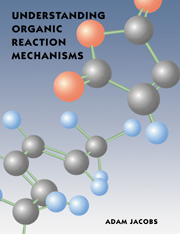Crossref Citations
This Book has been
cited by the following publications. This list is generated based on data provided by Crossref.
De Maria, Paolo
Fontana, Antonella
Siani, Gabriella
and
Spinelli, Domenico
1998.
Kinetics of the Enolisation Reactions of 3-Acetyl-2,5-dimethylfuran and of 2-Acetylselenophene.
European Journal of Organic Chemistry,
Vol. 1998,
Issue. 9,
p.
1867.
Uludag-Demirer, Sibel
and
Bowers, Alan R.
2000.
Adsorption/Reduction Reactions of Trichloroethylene by Elemental Iron in the Gas Phase: The Role of Water.
Environmental Science & Technology,
Vol. 34,
Issue. 20,
p.
4407.
Kuzmanović, Boris
Kuipers, Norbert J. M.
de Haan, André B.
and
Kwant, Gerard
2003.
Reactive Extraction of Carbonyl Compounds from Apolar Hydrocarbons Using Aqueous Salt Solutions.
Industrial & Engineering Chemistry Research,
Vol. 42,
Issue. 13,
p.
2885.
Schultz, T. W.
Carlson, R. E.
Cronin, M. T. D.
Hermens, J. L. M.
Johnson, R.
O’Brien, P. J.
Roberts, D. W.
Siraki, A.
Wallace, K. B.
and
Veith, G. D.
2006.
A conceptual framework for predicting the toxicity of reactive chemicals: modeling soft electrophilicity.
SAR and QSAR in Environmental Research,
Vol. 17,
Issue. 4,
p.
413.
Schultz, T. W.
Yarbrough, J. W.
and
Koss, S. K.
2006.
Identification of reactive toxicants: Structure–activity relationships for amides.
Cell Biology and Toxicology,
Vol. 22,
Issue. 5,
p.
339.
Gagan, E. M.
Hull, M. W.
Schultz, T. W.
Pöch, G.
and
Dawson, D. A.
2007.
Time Dependence in Mixture Toxicity with Soft Electrophiles: 1. Combined Effects of Selected SN2- and SNAr-Reactive Agents with a Nonpolar Narcotic.
Archives of Environmental Contamination and Toxicology,
Vol. 52,
Issue. 3,
p.
283.
Cireli, Aysun
Kutlu, Bengi
and
Mutlu, Mehmet
2007.
Surface modification of polyester and polyamide fabrics by low frequency plasma polymerization of acrylic acid.
Journal of Applied Polymer Science,
Vol. 104,
Issue. 4,
p.
2318.
Dawson, D. A.
Jeyaratnam, J.
Mooneyham, T.
Pöch, G.
and
Schultz, T. W.
2010.
Mixture Toxicity of SN2-Reactive Soft Electrophiles: 1. Evaluation of Mixtures Containing α-Halogenated Acetonitriles.
Archives of Environmental Contamination and Toxicology,
Vol. 59,
Issue. 4,
p.
532.
Coronell, Orlando
González, Mari I.
Mariñas, Benito J.
and
Cahill, David G.
2010.
Ionization Behavior, Stoichiometry of Association, and Accessibility of Functional Groups in the Active Layers of Reverse Osmosis and Nanofiltration Membranes.
Environmental Science & Technology,
Vol. 44,
Issue. 17,
p.
6808.
Schwöbel, Johannes A. H.
Koleva, Yana K.
Enoch, Steven J.
Bajot, Fania
Hewitt, Mark
Madden, Judith C.
Roberts, David W.
Schultz, Terry W.
and
Cronin, Mark T. D.
2011.
Measurement and Estimation of Electrophilic Reactivity for Predictive Toxicology.
Chemical Reviews,
Vol. 111,
Issue. 4,
p.
2562.
Coronell, Orlando
Mariñas, Benito J.
and
Cahill, David G.
2011.
Depth Heterogeneity of Fully Aromatic Polyamide Active Layers in Reverse Osmosis and Nanofiltration Membranes.
Environmental Science & Technology,
Vol. 45,
Issue. 10,
p.
4513.
Dawson, D. A.
Mooneyham, T.
Jeyaratnam, J.
Schultz, T. W.
and
Pöch, G.
2011.
Mixture Toxicity of SN2-Reactive Soft Electrophiles: 2—Evaluation of Mixtures Containing Ethyl α-Halogenated Acetates.
Archives of Environmental Contamination and Toxicology,
Vol. 61,
Issue. 4,
p.
547.
Califano, Salvatore
2012.
Pathways to Modern Chemical Physics.
p.
223.
Dawson, D. A.
Pöch, G.
and
Schultz, T. W.
2014.
Mixture Toxicity of SN2-Reactive Soft Electrophiles: 3. Evaluation of Ethyl α-Halogenated Acetates with α-Halogenated Acetonitriles.
Archives of Environmental Contamination and Toxicology,
Vol. 66,
Issue. 2,
p.
248.
Takahashi, Ohgi
Kirikoshi, Ryota
and
Manabe, Noriyoshi
2015.
Acetic Acid-Catalyzed Formation of N-Phenylphthalimide from Phthalanilic Acid: A Computational Study of the Mechanism.
International Journal of Molecular Sciences,
Vol. 16,
Issue. 6,
p.
12174.
Takahashi, Ohgi
Kirikoshi, Ryota
and
Manabe, Noriyoshi
2015.
Acetic Acid Can Catalyze Succinimide Formation from Aspartic Acid Residues by a Concerted Bond Reorganization Mechanism: A Computational Study.
International Journal of Molecular Sciences,
Vol. 16,
Issue. 1,
p.
1613.
Sousa, Carlos A. D.
Sampaio-Dias, Ivo E.
García-Mera, Xerardo
Lima, Carlos F. R. A. C.
and
Rodríguez-Borges, José E.
2016.
On the scope of oxidation of tertiary amines: Meisenheimer rearrangements versus Cope elimination in 2-(cyanoethyl)-2-azanorbornanes.
Organic Chemistry Frontiers,
Vol. 3,
Issue. 12,
p.
1624.
Saunders, Lucy K.
Nowell, Harriott
Spencer, Helen C. E.
Hatcher, Lauren E.
Shepherd, Helena J.
Thomas, Lynne H.
Jones, Charlotte L.
Teat, Simon J.
Raithby, Paul R.
and
Wilson, Chick C.
2018.
Tuning charge-assisted and weak hydrogen bonds in molecular complexes of the proton sponge DMAN by acid co-former substitution.
CrystEngComm,
Vol. 20,
Issue. 22,
p.
3074.
Nerdinger, Sven
Fliri, Lukas
Partl, Gabriel
Wurst, Klaus
Gelbrich, Thomas
and
Schottenberger, Herwig
2020.
Expedient Routes to 1,2,4-Triazolinium Salts
.
HETEROCYCLES,
Vol. 101,
Issue. 2,
p.
593.
Hashemi, Seyyed Alireza
Mousavi, Seyyed Mojtaba
Bahrani, Sonia
Ramakrishna, Seeram
Lai, Chin Wei
and
Chiang, Wei‐Hung
2021.
Self‐Healing Smart Materials and Allied Applications.
p.
153.



